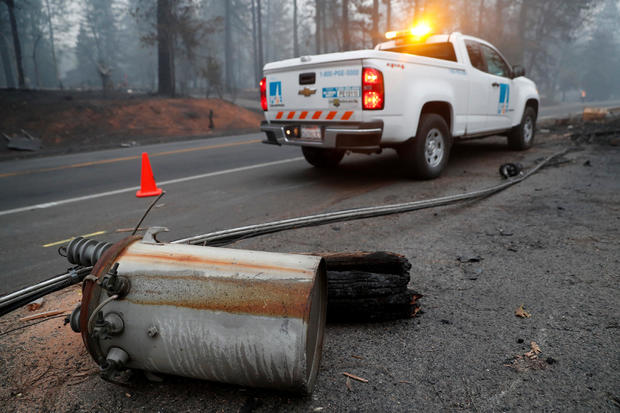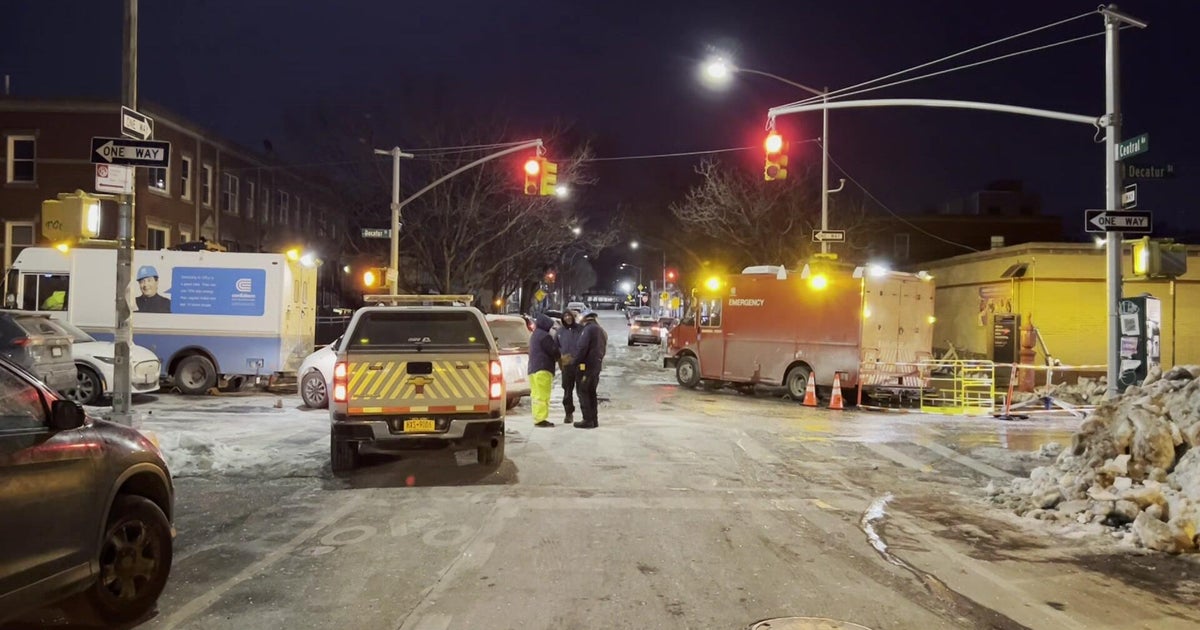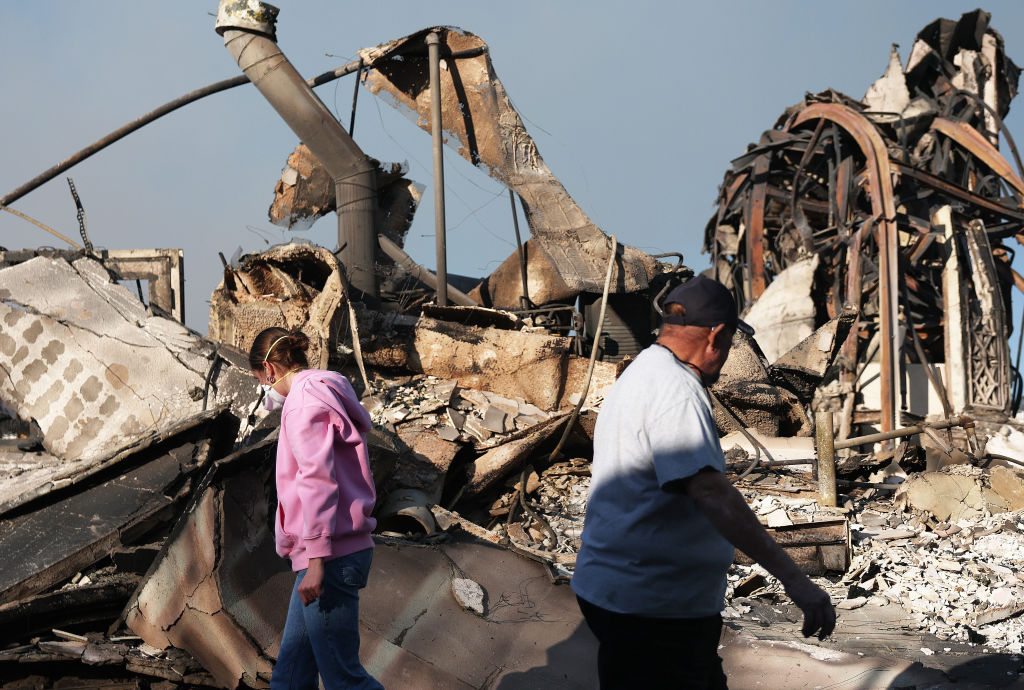California throws lifeline to PG&E over potential Camp Fire liability
SACRAMENTO, Calif. - Shares of Pacific Gas & Electric soared Friday after California's top utility regulator said his agency will help the company deal with potentially crippling liability costs from wildfires.
Stock prices soared nearly 38 percent after plunging 60 percent and losing $15 billion in valuation in the week following the Northern California wildfire that is the nation's deadliest in a century.
- Death toll rises in California's Camp Fire as number of unaccounted for leaps
- PG&E asked to hike bills over California fires
- For richer Californians, private firefighters help battle blaze
No cause has been determined, but speculation has centered on PG&E, which reported an outage around the time and place the fire ignited. The death toll from the so-called Camp Fire has risen to at least 63, with hundreds of people still unaccounted for. California state investigators in June faulted PG&E-owned power lines for sparking a dozen blazes in Northern California in the fall of 2017 that killed 46 and incinerated nearly 9,000 homes and other structures.
Late Thursday, California Public Utilities Commission President Michael Picker sought to calm financial markets by indicating support for the continued viability of PG&E and other publicly traded utilities.
In an interview with the San Francisco Chronicle, Picker said his agency will soon implement a provision in a new state law that makes it easier for utilities to pass costs for past wildfires to their customers. He said additional legislation may be needed to ensure that provision applies to this year's fires.
"They have to be financially healthy to be able to provide those goods and services that ratepayers need," he told the Chronicle. "If they can't borrow money, if they have liquidity problems and they can't do vegetation management, that's a problem. That's not good policy, to really let them get financially unstable."
He also said he will widen an investigation of PG&E's safety culture, which started following the regulator's investigation of a 2010 gas pipeline explosion in San Bruno that killed eight people.
Even with Friday's rebound, PG&E shares were trading about 50 percent lower than they were when the fire broke out on Nov. 8.
PG&E said in a regulatory filing on Tuesday that it could face "significant liability in excess of insurance coverage" if its equipment is found to have caused the Camp Fire.
Moody's and S&P downgraded the credit ratings for the utility and its parent company late Thursday and warned that further downgrades were possible. Another downgrade would likely drop their debt below investment grade, making it significantly harder and costlier for the company to raise money to operate its sprawling network.
It's unclear whether the Legislature and incoming Gov. Gavin Newsom will have the appetite to offer more help for PG&E after last year's legislation was blasted as a bailout.
"The fires are still burning, bodies are still being recovered. As a state right now we are focused on supporting the victims and the recovery of these communities," said Sen. Bill Dodd, a Napa Democrat who wrote the most recent legislation. "The facts aren't in about the cause of these fires, and it's too soon to speculate about future legislation."
Lynsey Paulo, a spokeswoman for PG&E, welcomed Picker's comments.
"Access to affordable capital is critical to carrying out safety measures and meeting California's bold clean energy goals," she said in a statement. "Recently passed legislation recognized the importance of financially healthy utilities to California electric customers and implementing it quickly is important to achieve that goal."
PG&E last month asked U.S. energy regulators for permission to raise its customers' monthly bills. The reason: to harden its system against wildfires and deliver a sizable increase in profits to shareholders.
In an October filing with the Federal Energy Regulatory Commission, Pacific Gas & Electric Co. laid out a variety of dangers confronting its transmission lines running through Northern California, saying its system faced a higher risk of wildfires than any other utility.
"The implications of PG&E's exposure to potential liabilities associated with wildfires are dramatically magnified," the filing said. "Overcoming the negative financial impact of any significant damages that might ultimately be attributed to PG&E will require an ongoing commitment of capital from investors."




